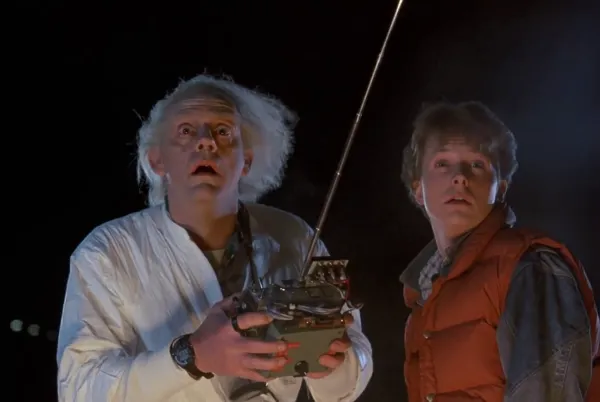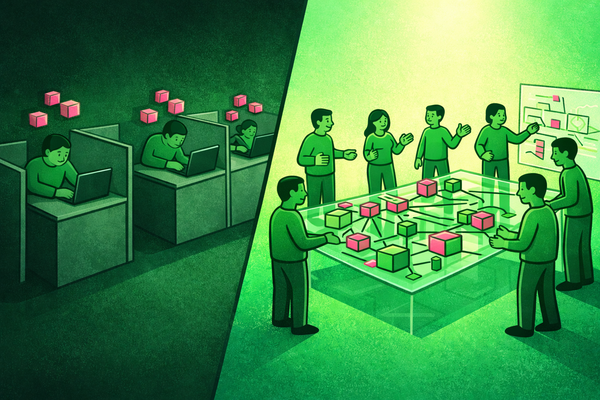[YOUR ADVANTAGE] The AI Workflow Designer: The Most Valuable Employee You Don’t Have Yet
What they do, why they're critical, and how to identify potential candidates on your team
![[YOUR ADVANTAGE] The AI Workflow Designer: The Most Valuable Employee You Don’t Have Yet](/content/images/size/w1200/2025/08/ChasingNext-AI-Workflow-Designer-1.png)
Let's kick this week off with our foot on the gas.
Welcome to the Your Advantage portion of the newsletter.
My goal with this edition is to give you a strategic leg up.
Here I'll be sharing frameworks and skill-building tactics.
They won't necessarily be the hype-y stuff.
I've found most of that to be disconnected from workplace realities.
Instead, they'll be grounded in the complexities of corporate life.
By the end, you'll have something practical to try this week.
So, let's begin by talking about a role that will be critical in AI-forward orgs.
You've Heard AI Will Replace Jobs. BUT...
Reality is more interesting.
Sure, jobs will change.
Some will become less relevant.
But other new roles will emerge.
I'm talking AI Implementation Manager, AI Ethics Officer, and AI Workflow Designer.
The last one is something I've been stuck on ever since this post by Greg Isenberg (one of my favorite AI thought leaders) on X back in March.

Greg mentioned consultants, but I think this will also be one of the most important roles inside organizations.
Think about it:
- Who knows how work gets done?
- Who understands what drives the business?
- Who sees inefficiencies, workarounds, and 'that's just what we do' processes?
It's the people doing the work.
Here's the timeline I see playing out:

- Pilots: AI pilot projects & internal scoping (this is where we are today)
- Growth: AI adoption grows (better tools & AI-first competitors emerge)
- Impact: Companies feel AI's impact (currently a lagging indicator, not felt yet)
- Action: C-suite demands organizations to adopt AI in bigger ways
- Integration: AI workflow designers systematically redesign how work is done
Today, many AI tools are premature.
Companies are large, and change is hard to implement.
But AI tools are getting better and new AI-first competitors are spinning up.
Once business revenue and customer satisfaction take a hit, they'll move quick.
This is where AI Workflow Designers become critical.
(Hopefully even earlier if your company properly prepares.)
What will AI Workflow Designers do?
They'll be the architects of how AI gets embedded into daily work.
Think business strategist + process engineer.
You may be thinking...
Why do we need a dedicated role?
Plenty of teams are already using individual AI tools.
AI for content, social graphics, research, and customer management.
These create wins.
It's because the AI Workflow Designer is thinking bigger.
They're creating totally new processes.
They're building better systems and coming up with new ways to do things.
Their work goes beyond optimizing individual tools or tasks.
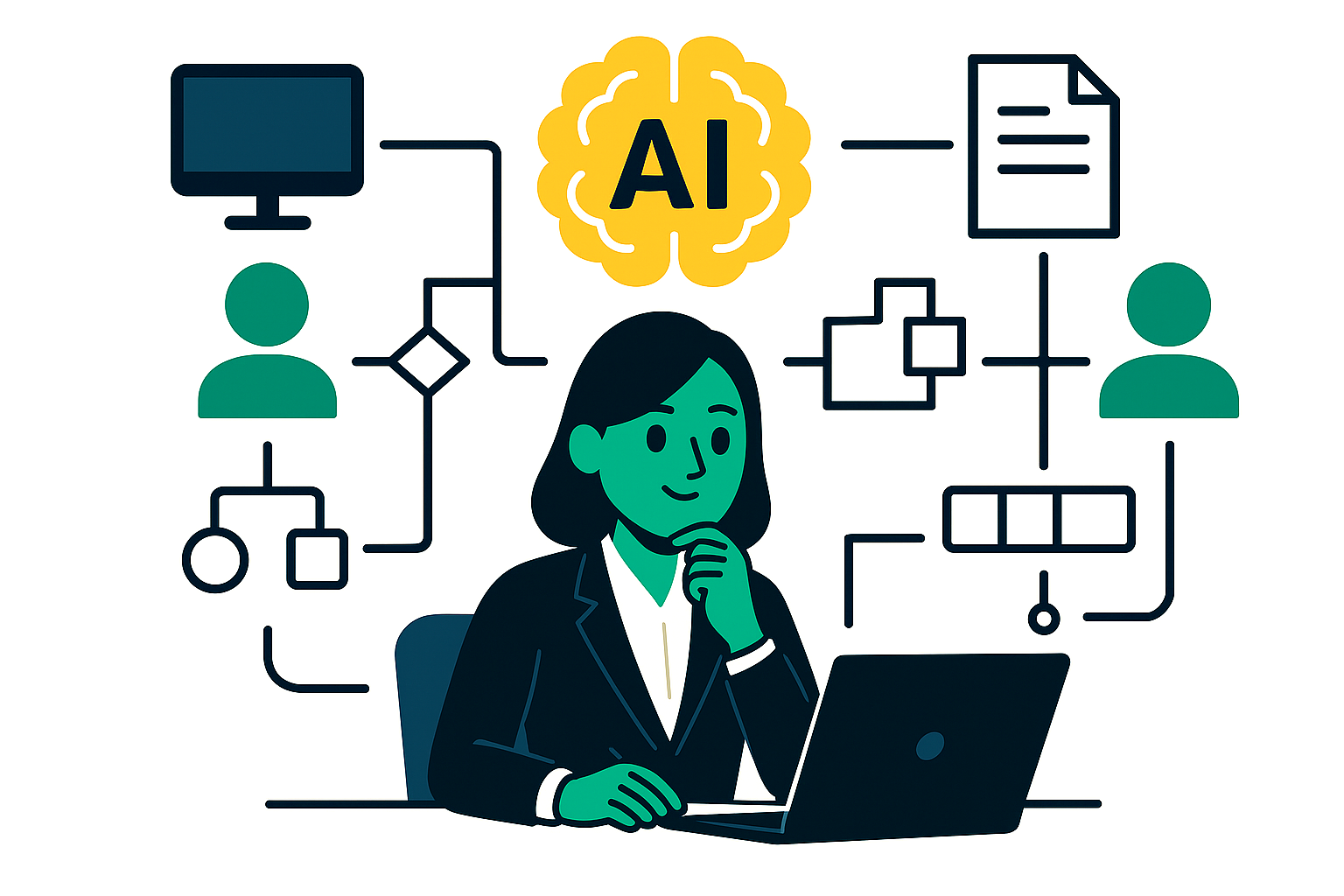
Ginny, an AI Workflow Designer at a DTC brand, maps their fragmented campaign planning strategy. Campaigns are planned in silo, without fully considering other efforts they'll have in market, competing messaging, or the investment they have in each platform.
She redesigns the workflow so AI maintains a real-time view of all campaigns, budgets, and messaging across channels, alerting teams to conflicts before launch, while team members make strategic calls about prioritization and brand coherence.
Result: less competing messages and better ROI.
Here's the key...
Why was Ginny so effective?
She was a Marketer who became an AI Workflow Designer.
Not a roving AI specialist.
Her deep knowledge of the Marketing process helped her create an automated system that solved her team's problems.
Did she do this alone?
Of course not!
She got input from key partners.
She had a sound idea of AI's capabilities.
Mapped it out (with the help of AI, of course).
Then partnered with technical teams to bring it to life.
This is just one of the workflows Ginny will create for the Marketing team.
She'll also be responsible for connecting processes across the organization.
Her value lies in her specialist expertise + newly acquired AI knowledge.
What AI Knowledge Does The AI Workflow Designer Need?
These will be the first non-technical team members to shift towards becoming more technical.
They'll need to know the skills below (many will come on the job):
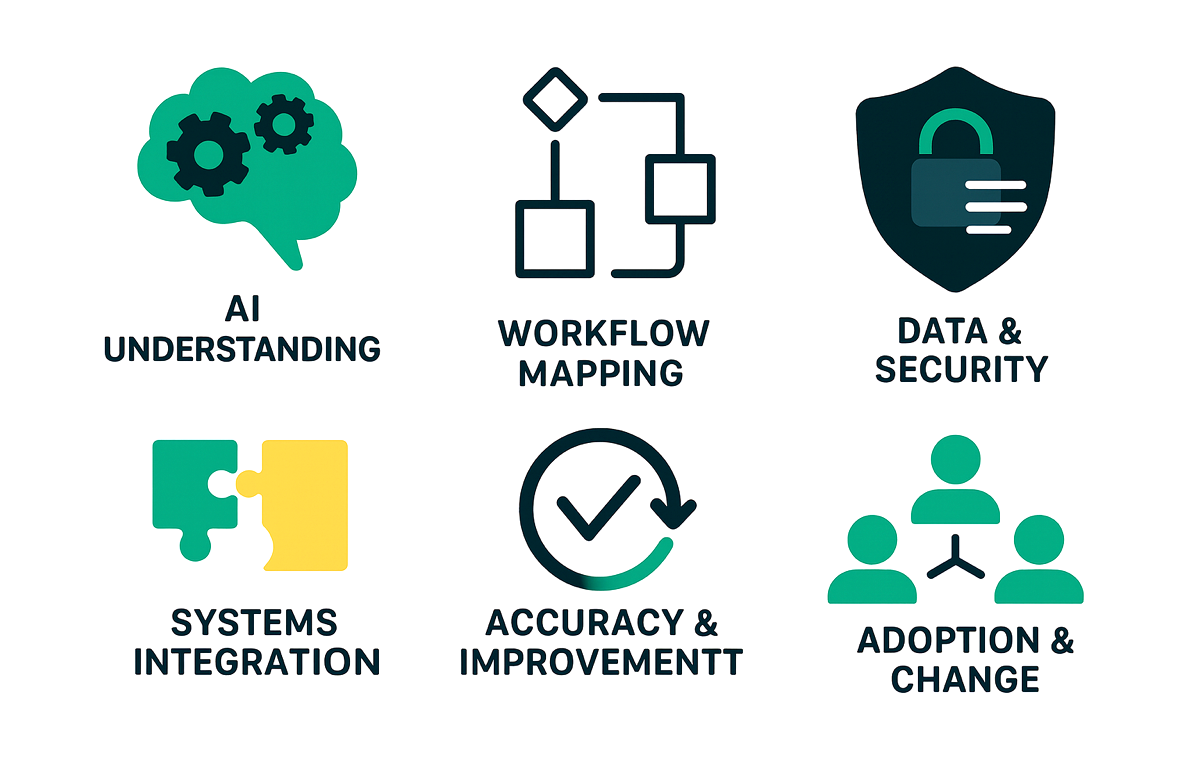
- Understand the AI Landscape: Separate hype from reality, know current capabilities and limitations, and match tools to business needs
- Map & Diagnose Workflows: Break down existing processes to spot inefficiencies, bottlenecks and AI leverage points
- Design Secure Data Flows: Plan what and how data moves through the workflow with the help of developers. Their efforts also include protecting privacy and complying with regulations
- Integrate AI into Systems: Work with technical teams to connect AI tools to existing platforms
- Build for Accuracy & Improvement: Implement human review points, quality checks and feedback loops
- Drive Adoption & Change: Prepare teams, run training and manage resistance
Important: As you can see, they won't be the ones responsible for building the technology. They are working with their team to meet needs and mapping it out for others to build.
Who Makes a Good AI Workflow Designer?
Remember Ginny's advantage?
It was her specialist expertise + newly acquired AI knowledge.
People who will excel at this role will be:
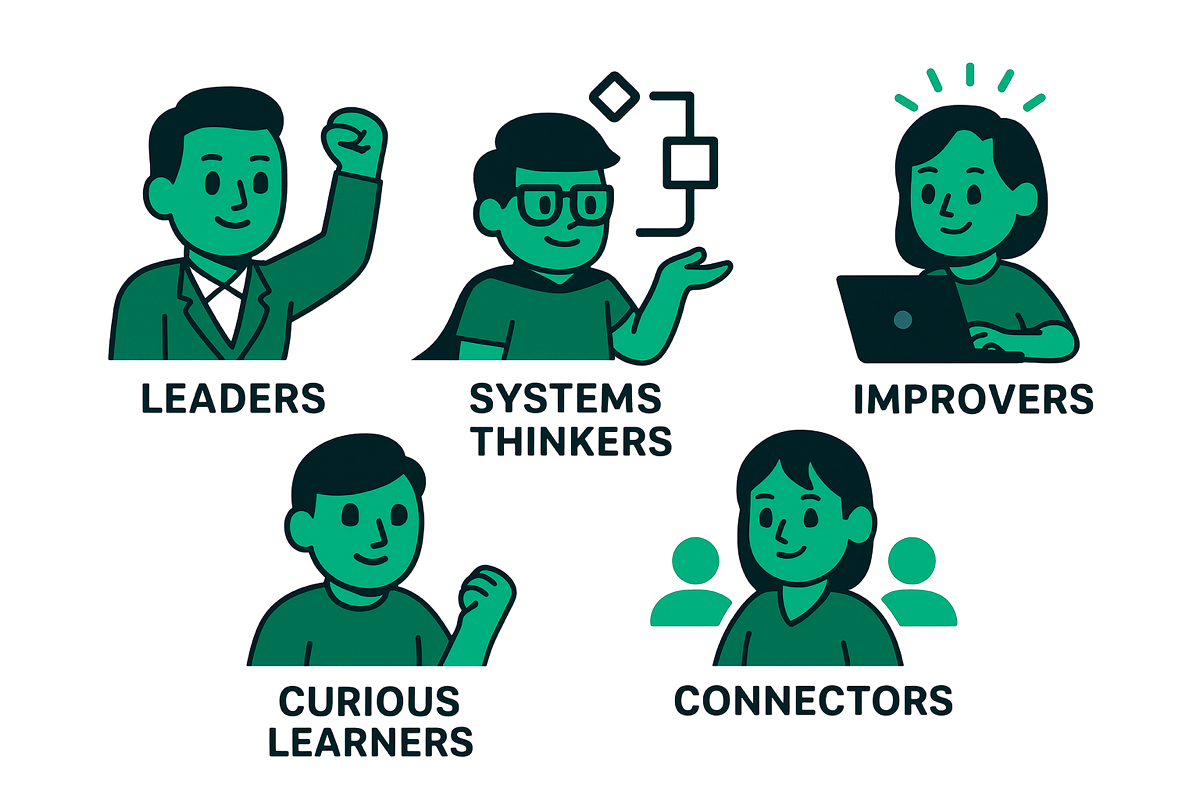
- Leaders: Top contributors who have a deep understanding of their function
- Systems Thinkers: Naturally see how big & small pieces connect
- Improvers: Those who are willing to get messy to make processes better
- Curious Learners: Someone excited to learn, test & keep up with trends
- Connectors: Able to bridge across teams, non-technical & technical people
Am I describing your top employees?
Yes. That is how important transitioning to AI is.
Your Next Step
Does this sound like you?
On the other end, maybe this sounds horrible to you?
The goal is to set yourself, your team or your organization up for success.
That means putting a plan in motion.
Start by assessing your organization's AI readiness.
AI Workflow Designer Readiness Assessment
Evaluate your organization's readiness and identify your next steps
| Current AI Foundation | |||
| Question | Yes | Partially | No |
|---|---|---|---|
| Does your company have a clear AI strategy? (Different than a mandate) | |||
| Have employees received AI training or are teams figuring it out individually? | |||
| Are teams coordinating AI efforts or implementing tools in silos? | |||
| Workflow Design Readiness | |||
| Question | Yes | Partially | No |
|---|---|---|---|
| Is leadership thinking about automation & AI workflow integration? | |||
| Are there employees already bridging technical & non-technical teams? | |||
| Do you have people who naturally map processes & spot inefficiencies? | |||
Based on Your Assessment:
- Identifying high-potential candidates from different departments
- Creating a development track providing deeper, specialized AI knowledge
- Starting pilot projects where candidates can test AI workflow design
- Begin by training your team on AI fundamentals
- Establish a cross-functional AI team to structure an overarching strategy
- Identify potential AI Workflow Designer candidates
Want to Become an AI Workflow Designer Yourself?
A. Start Learning on Your Own
- Focus on understanding AI & automation fundamentals first
- Begin experimenting with AI tools relevant to your function
- If you are not permitted to experiment with AI at work, create a personal project (building something yourself is the best way to learn AI)
B. Make a Case to Your Superiors
- Bring this framework to your manager as a career development conversation
- Propose starting with a small workflow mapping project in your department
- Position it as skill-building that benefits you & the org
The Bottom Line:
AI Workflow Designers will be critical to organizational success.
This week: Assess your organization, identify your candidates, or take the first step toward becoming a workflow designer yourself.
Not a subscriber yet? Join here for weekly insights on AI, strategy, and the changing workplace.
Found this useful? Forward it to a teammate who’s figuring out AI too.



